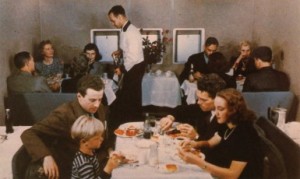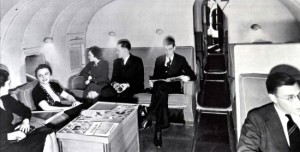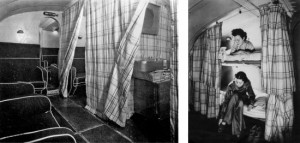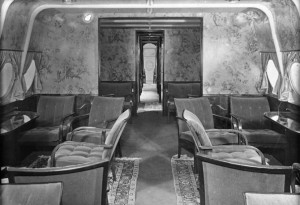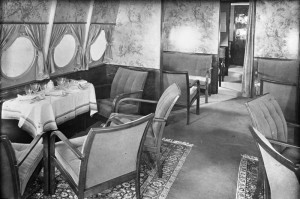Last Tuesday I gave you all chapter one of The Golden Fleece Affair for your reading pleasure. This week, I give you chapter two. Tomorrow, you get the entire book for your reading pleasure.
I hope you enjoy the sample.
TWO
The Golden Fleece
The House on the Enchanted Hill
Afternoon
Thursday, 8 April 1954
Afternoon
Thursday, 8 April 1954
“Lady Hurley-Drummond, Karl, good to see you,” Mr Hall said, while shaking our hands. “Sit, eat, you must be hungry. While you eat, I’ll tell you a story.”
He looked quite frail. Granted, he is ninety. Last year, however, he seemed so much more robust. I wondered if he was ill. From the baskets, I helped myself to cold ham, cheese, olives, bread, and wine. Karl helped himself to a cold sausage instead of the ham.
While we ate, Mr Hall began. “I assume you two are familiar with the story of the Golden Fleece.”
“Well enough,” Karl said.
“Right,” Mr Hall replied and continued, “Jason, to take back his father’s throne, had to retrieve the Golden Fleece from Colchis. Which just so happens to be modern day Georgia on the east coast of the Black Sea. With the help of Medea, Jason captured the fleece. Medea, under Eros’ influence, had fallen in love with Jason. After Jason had possession of the fleece, he and Medea made their escape in the Argo and eventually arrived in Greece. The funny thing about the story, at least what I find to be odd, is that the fleece disappears once Jason and Medea are in Greece and King Pelias, who took the throne from Jason’s father, is killed by Medea’s machinations and magic. The fleece suddenly has nothing to do with anything. Ever wonder what happened to the Golden Fleece?”
Karl and I looked at each other. I spoke, “I never thought about it.” Karl voiced agreement.
“Doctor Wilbur Franzen and Doctor Elise Rodman have posited the novel theory that the fleece Jason got was a fake to throw off potential thieves from the real fleece.”
“What about the dragon and the skeleton soldiers?” Karl asked. “Why have them if the fleece was a fake?”
“Double protection, probably,” Mr Hall said. “Scare the hell out of any potential thieves and if they happen to get through and nab the fleece all they get for their efforts is a fake.”
“Medea must not have known the fleece she was helping Jason steal was a fake,” Karl pointed out.
“I agree,” Mr Hall said. “Probably only the king and a very trusted advisor knew. So imagine Jason’s and Medea’s surprise when they get to Greece and find the fleece to be a worthless rug. Since there was nothing special about the fleece, it simply disappears from the story and history.”
“I suppose that makes some measure of sense,” I said.
“Is there a reason, sir, you mention this myth?” Karl asked.
“There is indeed, Karl, there is indeed. For you see, the true Golden Fleece has been discovered. It exists. In modern day Georgia.”
“What?” Karl and I chorused.
“Yes. It has been found. A treasure hidden and discovered by accident. Something akin to those scrolls found by the Dead Sea some seven years ago. This discovery will be even more earth shaking when made public.”
“How so, sir?” I asked.
“Because, my dear Lady Hurley-Drummond, the fleece has power. Real power. Power to heal and power to grant authority and kingship to its possessor.”
“Who has it or where is it?” Karl asked.
“You are aware of the Italian invasion of Crimea and their push east along the coast of the Black Sea,” Mr Hall began.
Karl and I nodded.
“You are also aware they are presently trying to secure the coast of Georgia.”
Again we nodded.
“Good. What you are probably not aware of is the discovery of a cave by a company of Italian soldiers and in that cave of a brilliant golden fleece. So brilliant it is as though it were actually made of gold. With the Italian company were John Gortman, one of my reporters, and Felix Axelson, one of my photographers. Felix took photographs and John wrote up a detailed description. These were sent back to me. I ran both the photos and the description by Doctors Rodman and Franzen for corroboration. They are convinced it is the real McCoy that has been discovered.”
“What did the Italians do with it?” I asked.
“That’s the rub, Lady Hurley-Drummond. The Italians were routed in a counter-attack by the Georgian Liberation Army, or GLA as they’re referred to for short, and lost control of the area and the fleece. Neither the Italians, nor the Georgians have made any official announcement of the discovery. But anything that looks like gold, well, word spreads. The public is still largely ignorant of the find; however, enough people know and word has gotten back to a host of governments. Now the area is being flooded with military, para-military, secret agents, you name it. The most important players trying to nab the fleece from the Georgians are the Soviets, the Czarists, the Italians, the Germans, the British, and even the US government.”
“I still don’t understand why these governments want the fleece,” I said.
Mr Hall explained, “The power the fleece has. The GLA thinks the fleece will help them win independence. The Soviets think it will keep them in power. The Czarists, that it will put a Czar back on the Russian throne. The Germans, so Hitler can rule his thousand year reich until its end. The Italians, so Il Duce can achieve his dream of a new Roman Empire. The Brits, so Britannia still rules. We want it so democracy can be kept safe and secure from all the bad guys.”
“So why are we here, Mr Hall?” I asked.
“Good question, Lady Hurley-Drummond. You and Karl are here because I want it. You see, I’m very ill. In fact, I’m dying. I know. I’m going to be ninety-one in a couple of weeks. I’m an old man. But who in their right mind wants to die? No one. Certainly not I. I want the fleece because it will heal me of my disease. Owning it will let me live many more years. You and Karl are here because I want you to get the fleece for me.”
[Originally published 28 April 2015 on www.cwhawes.com.]
